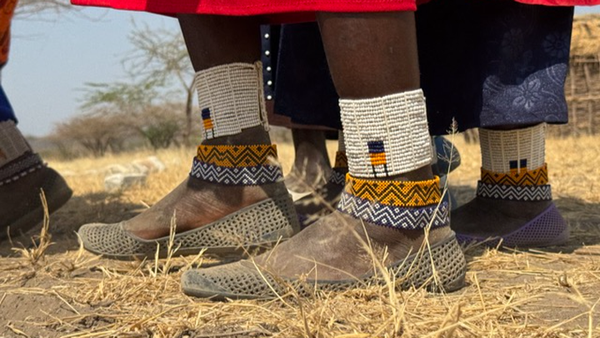Are Ethnicity Filters on Dating Apps Problematic, or Necessary?
The reasoning behind ‘collaborative filtering’ and ‘race filters’ may be more complex than we think.

Access the Audio Read version of this article directly on Spotify for Podcasters.
“With apps like Hinge and OKCupid still offering these (ethnicity) filters, and self-preference dictating our experience of these apps, issues stemming from ethnicity filters stem far deeper than removing them.”
For those who have gone through the slightly painful task of filling in their likes and dislikes, choosing photos with the perfect lighting, and getting ready to be scrutinised with one flick of the thumb, creating a dating profile is a memorable process. But one particular aspect that has sparked sustained controversy is the ‘ethnicity filter’, where people can both place their ethnicity on their profile and filter out ethnicities in their matches. Not all dating apps have explicit filters, but there are a number of nuances from ‘collaborative filtering’, an algorithm predicting users’ preferences and inherent bias leading to the rejection of certain ethnicities.
At face value, the outcry makes perfect sense. Purposefully avoiding certain ethnicities because you don’t even want the prospect of dating them is a fundamentally horrifying perspective. However, the use of these filters shows far more than meets the eye.
Halima, 20, spoke to me about her experience of using ethnicity filters to make apps a safer place to navigate: “Dating as a black person, especially as a dark skinned black woman or non binary person, is so hard. It can feel like nobody wants to date you so I’ve personally found it very useful.” Halima eventually found someone on the filter-free Tinder, but said, “I found my boyfriend through Tinder, which had no racial preferences, but even without the preference option, I had one in my head.”
It's not a surprise that even without app filters, people subconsciously choose their preferences and, in the long-run it makes sense. For some, marrying within our ethnicity or finding someone who we know will understand our culture is paramount to a happy relationship.
“I personally come from a family that is comfortable with me dating outside my ethnicity, but I understand why certain people would use them”, says Sarah, a Pakistani woman who has used a range of dating apps from Hinge to Bumble and Dil Mil. According to Sarah, some members of her community may still feel pressure from family and community to find someone of the same ethnicity.
Sabrina, who is from an Ashkenazi Jewish background, had similar reasons. “I am a modern Orthodox Jew, and a fundamental tenet of the religion is to marry Jewish. This law is really important to me and I don’t really see the point in dating someone not Jewish, because it could never lead anywhere.” Sabrina used a Jewish specific dating app ‘JSwipe’, before eventually meeting someone through Hinge, using ethnicity filters.
A number of people we spoke to echoed these sentiments. Serena*, summed up the approach by saying, “I did apply the ethnicity filter on Hinge to filter for South Asian men and women. It's important for me to be in a relationship with somebody who understands mine and my family's cultural background. I'd also like to make sure I'm able to pass down some parts of my culture to my future children, which is made easier when both partners are from the same cultural background.”
For many diasporas disconnected from their homeland and finding roots in western countries, finding a community and family that can support the preservation of our heritage is vital for our identity.
Despite this, many still had their reservations. Somriddho, from an Indian background, spoke of his and his friends' experience of using dating apps. “I found that Hinge openly offers the ethnicity filter, while on Grindr, a lot of users mention their ethnicity preferences in their bio, in statements like “no Asians” or “Black guys to the front” etc. This made me feel incredibly uncomfortable because dating solely on the basis of race and ethnicity is both racist and fetishist.”
At its core, when looking at this from the perspective of marginalised groups, Serena said, “I think the ethnicity filter debate is another one of those things that white people have managed to ruin. Perhaps the reason these apps baked them in is because they noticed many ethnic minorities were asking for them - we can see that in the way that dating apps for specific ethnic communities are going through the roof.”
The uncomfortable truth is that, despite the positive attributes of filters, there will always be people using them to solidify their biases. But, it does make you consider, if someone is filtering you out of their search options, would you want to be with them? In a twisted way, people with questionable views filter themselves out of your feed as well.
In the wake of the Black Lives Matter movement growing momentum in 2020, there has been a change of attitudes on these apps. Sarah wrote, “I feel like apps such as Bumble have done a great job over the last year in advertising and celebrating diversity and inclusivity. Their #MyLoveIsBlackLove campaign was so powerful and moving, and I think it would be great for apps like MuzMatch or Salam to do the same because racism and colourism are just as prevalent in minority cultures.”
Whilst Somriddho said, “potential problems could be partially dealt with by removing the ethnicity filter and banning racist language on dating apps. However, it is necessary that these apps use their social media accounts to raise awareness about racist and fetishist behaviour.”
Despite the pros and cons from either side, one thing is clear. Dating apps need to be doing more to tackle racist and targeted language cropping up across their app, and must find ways to protect marginalised communities beyond engaging in a debate about filters.
With apps like Hinge and OKCupid still offering these filters, and self-preference dictating our experience of these apps, issues stemming from ethnicity filters stem far deeper than removing them.
*name changed on request





